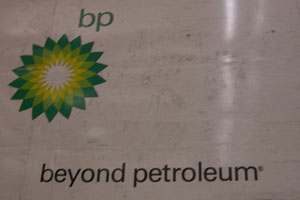
Wikimedia / <a href="http://commons.wikimedia.org/wiki/File:Der_Austernfreund.jpg">"Der Austernfreund," 1837</a>
Good news for oyster eaters—sort of. Oil from the BP/Deepwater Horizon spill hasn’t hit Lousiana’s oyster reefs yet, but according to the National Ocean Service and the National Oceanic and Atmospheric Administration, it could within days. Yesterday I talked with Thomas Soniat, a professor and researcher at the University of New Orleans’ Department of Biological Sciences, and he told me that, yes, oysters will take up oil as the slick comes through, so you wouldn’t want to eat oysters harvested around that time—they’d even taste like oil.
But: “Oysters are very good at cleansing themselves. They’re very resilient.” The process, if you want to impress your friends with the fancy name, is called depuration, and self-cleansing oyster tissue means that they’re safe—and delicious—to eat again just two weeks after their exposure to oil ends. (They also filter the water around them; one design firm has suggested cultivating oyster villages in Brooklyn’s Gowanus Canal to help clean up the Superfund site.) The only thing they can’t cleanse is the bad post-spill PR. “The public-perception problem persists much longer than the true problem,” Soniat says, “and expands over a much broader geographical area.”
Of course, depending on the slick’s ultimate size and the weather patterns, oil could settle over the reefs and cover them for an extended period of time, which could kill some of them and would lengthen the depuration process. Even so, Soniat is optimistic. “Oysters are very fecund”—fecund enough to weather an oil leak during spawning season, which this happens to be. “It’s not gonna destroy the oyster industry in Breton Sound on a permanent basis. The industry will survive. The oysters will survive. The reefs could be safe to open again within weeks.” That is, if the oil stops leaking so cleanup can really get under way. “It’s just hard right now because the extent of the hardship is unknown.”


















